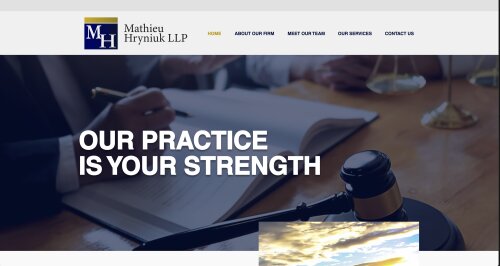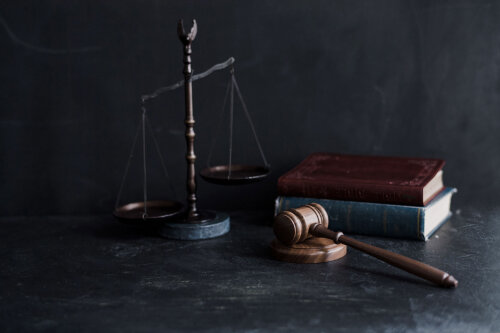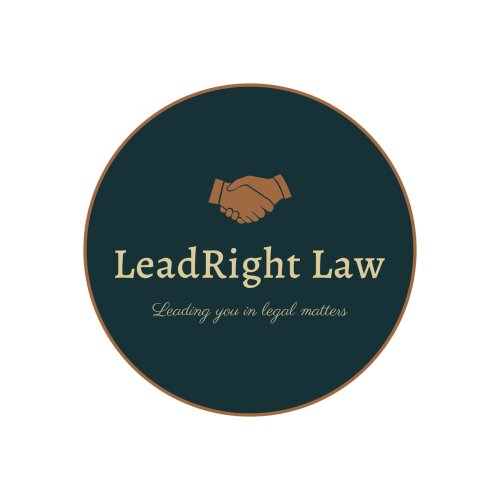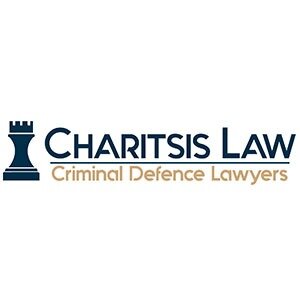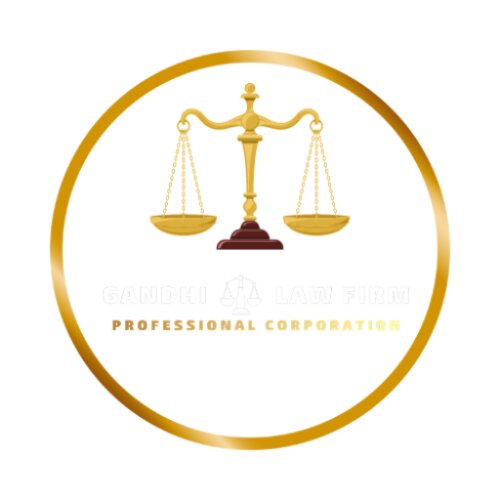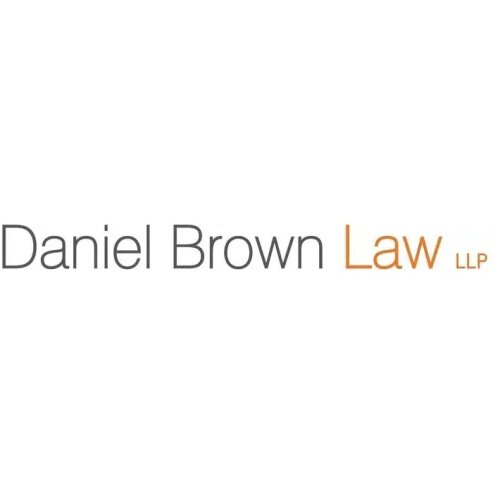Best Arrests & Searches Lawyers in Toronto
Share your needs with us, get contacted by law firms.
Free. Takes 2 min.
List of the best lawyers in Toronto, Canada
About Arrests & Searches Law in Toronto, Canada
Arrests & Searches law in Toronto, Canada is designed to uphold the rights of individuals while ensuring the safety and security of the community. It governs the procedures and regulations that law enforcement agencies must follow when arresting individuals or conducting searches of their person, property, or premises.
Why You May Need a Lawyer
Legal assistance in Arrests & Searches cases may be necessary in various situations, such as:
- If you have been arrested and want to understand your rights and the legal process
- If you believe your rights were violated during an arrest or search
- If you are facing criminal charges resulting from an arrest or search
- If you have questions or concerns about police actions during an arrest or search
Local Laws Overview
In Toronto, Canada, the following key aspects of local laws are particularly relevant to Arrests & Searches:
- Canadian Charter of Rights and Freedoms: This foundational document sets out the rights and freedoms guaranteed to all Canadians, including protection against unreasonable search and seizure.
- Criminal Code of Canada: This code outlines the laws related to criminal offenses, arrest procedures, and search and seizure powers granted to law enforcement.
- Toronto Police Services Act: This act governs the powers, authorities, and responsibilities of the Toronto Police Service and provides guidelines for interactions with the public.
Frequently Asked Questions
Q: What are my rights if I am arrested in Toronto, Canada?
A: If you are arrested in Toronto, Canada, you have the right to remain silent, the right to legal counsel, and the right to be informed of the reasons for your arrest. It is essential to exercise these rights and seek legal advice.
Q: Can the police search me without a warrant?
A: In certain circumstances, the police can conduct a search without a warrant. However, they must have reasonable grounds to believe that a crime has been committed and that the search will provide evidence related to the offense.
Q: What should I do if I believe my rights were violated during an arrest or search?
A: If you believe your rights were violated during an arrest or search in Toronto, it is important to consult with a lawyer who specializes in Arrests & Searches law. They can assess your situation, provide guidance, and help you take appropriate legal action if necessary.
Q: Can I sue the police for wrongful arrest or search?
A: Yes, if you believe that you have been wrongfully arrested or subjected to an unlawful search, you may be able to take legal action against the police. Consult with a lawyer to understand the specifics of your case and determine the best course of action.
Q: Where can I find legal support and advice in Toronto, Canada?
A: In Toronto, several law firms, legal aid organizations, and government agencies offer legal support and advice related to Arrests & Searches. Some helpful resources include the Ontario Ministry of the Attorney General, the Law Society of Ontario, and legal clinics such as the Downtown Legal Services.
Additional Resources
For further information and assistance regarding Arrests & Searches in Toronto, Canada, consider referring to the following resources:
- Ontario Ministry of the Attorney General: Website: www.attorneygeneral.jus.gov.on.ca
- Law Society of Ontario: Website: www.lsuc.on.ca
- Downtown Legal Services: Website: www.dls.dol.gov
Next Steps
If you require legal assistance regarding Arrests & Searches in Toronto, Canada, it is recommended that you:
- Seek legal advice as soon as possible from a lawyer specializing in Arrests & Searches law.
- Provide your lawyer with all relevant details and information about your arrest or search.
- Follow their guidance and instructions to protect your rights and pursue the appropriate legal action, if necessary.
- Maintain open communication with your lawyer throughout the legal process.
Lawzana helps you find the best lawyers and law firms in Toronto through a curated and pre-screened list of qualified legal professionals. Our platform offers rankings and detailed profiles of attorneys and law firms, allowing you to compare based on practice areas, including Arrests & Searches, experience, and client feedback.
Each profile includes a description of the firm's areas of practice, client reviews, team members and partners, year of establishment, spoken languages, office locations, contact information, social media presence, and any published articles or resources. Most firms on our platform speak English and are experienced in both local and international legal matters.
Get a quote from top-rated law firms in Toronto, Canada — quickly, securely, and without unnecessary hassle.
Disclaimer:
The information provided on this page is for general informational purposes only and does not constitute legal advice. While we strive to ensure the accuracy and relevance of the content, legal information may change over time, and interpretations of the law can vary. You should always consult with a qualified legal professional for advice specific to your situation.
We disclaim all liability for actions taken or not taken based on the content of this page. If you believe any information is incorrect or outdated, please contact us, and we will review and update it where appropriate.




